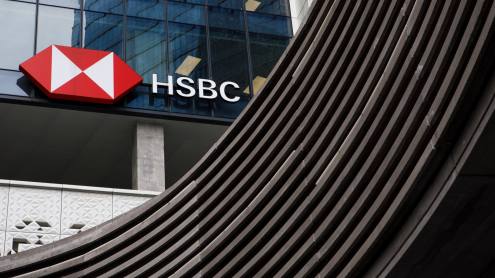If you’re old enough, you will remember the premise under which mobile phones were launched: to give you freedom. I’m pretty sure by now you could argue they give you everything except that.
In my 2003 book Brand Child, I mocked the term ‘social media’, claiming it should be renamed ‘anti-social’ media. My sense is that by now most people would sign on to that critique.
As technology evolves and further embeds itself into our society, so have its side effects evolved. Sure, those side effects were less prevalent in the early days of social media, but like a tsunami, they have torn through and transformed our landscape into something that likely would have been unrecognisable to our past selves.
It’s obvious that the banking industry has been and will continue to greatly depend on technology; technology is increasingly defining the backbone of the entire business. But given that banks do not really own any physical or truly differentiated products, you could claim that technology has put the industry onto a commodity path so steadfast that I think most people would struggle to explain the differences between one bank and another.
Unless your bank happens to be like Apple – operating the world’s most addictive ecosystem – loyalty in banking is undergoing an existential crisis. And there’s no easy solution to bring those loyal customers back.
Except for maybe one thing.
I tend to say that we’re all ‘out of balance’, and that it is the gap between being ‘in balance’ and ‘out of balance’ that represents an opportunity for a new product or service. On a recent trip across the US, that gap became increasingly noticeable to me.
As I visited nearly 100 different consumer homes across a handful of US states, I was taken aback by a grim observation I repeated in one home after another: loneliness. It is a realisation backed by Pew Research Centre, who recently reported that nearly 42% of US adults, at the time of the survey, felt lonely on at least one or two days during the past week.
As many people in the US and across the world have effectively ‘outsourced’ their local communities to Facebook, Instagram, TikTok and Amazon, and as one store after another has shuttered – along with community centres, churches and sports clubs – one consumer after another desperately shared their desire to return to the world they once knew and loved. And one of their pleas was for a local bank branch office.
the human dimension could be the key to helping [banks] differentiate themselves
You see, with the disappearance of communities, trust has followed suit. Community has been replaced by a steady stream of noise, fake news, spam, personality theft, feelings of hopelessness, android interactions and less-than-empathic staff once you finally get hold of someone – anyone!
But what I also discovered is that it doesn’t take a lot to renew people’s trust, particularly for banks. And that if customers are given the chance to meet with a banker, in person – even if they incur a fee – they would love this option. And most would come back in a heartbeat.
They might not necessarily hang around the bank every day, but that’s beside the point. The thought of having someone just around the corner to talk to or consult is so intriguing, I couldn’t help but wonder why banks were treating themselves only as commodity services when the human dimension could be the key to helping them differentiate themselves.
Because in a world where no one can be trusted – at least in my book – there’s an open space for someone who can. It doesn’t take much: perhaps just the realisation that trust requires a little bit more effort in return for a type of loyalty that few have but everyone wants.

Martin Lindstrom is the author of The Ministry of Common Sense and the founder of Lindstrom Company, a business transformation group.







